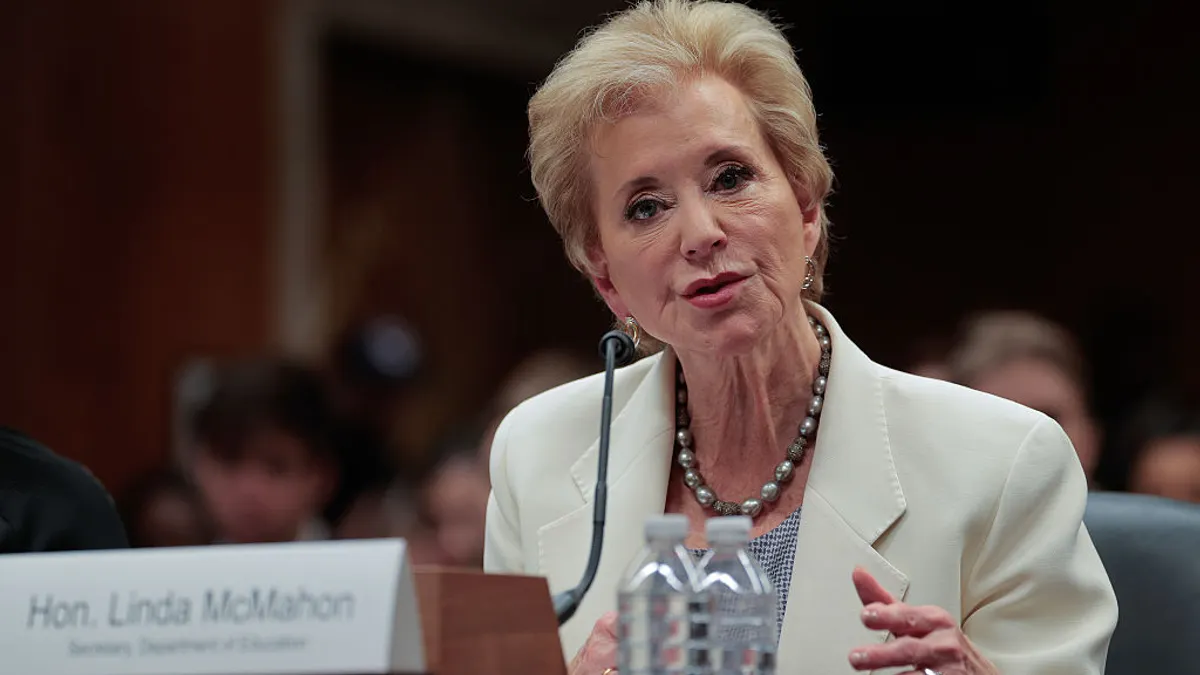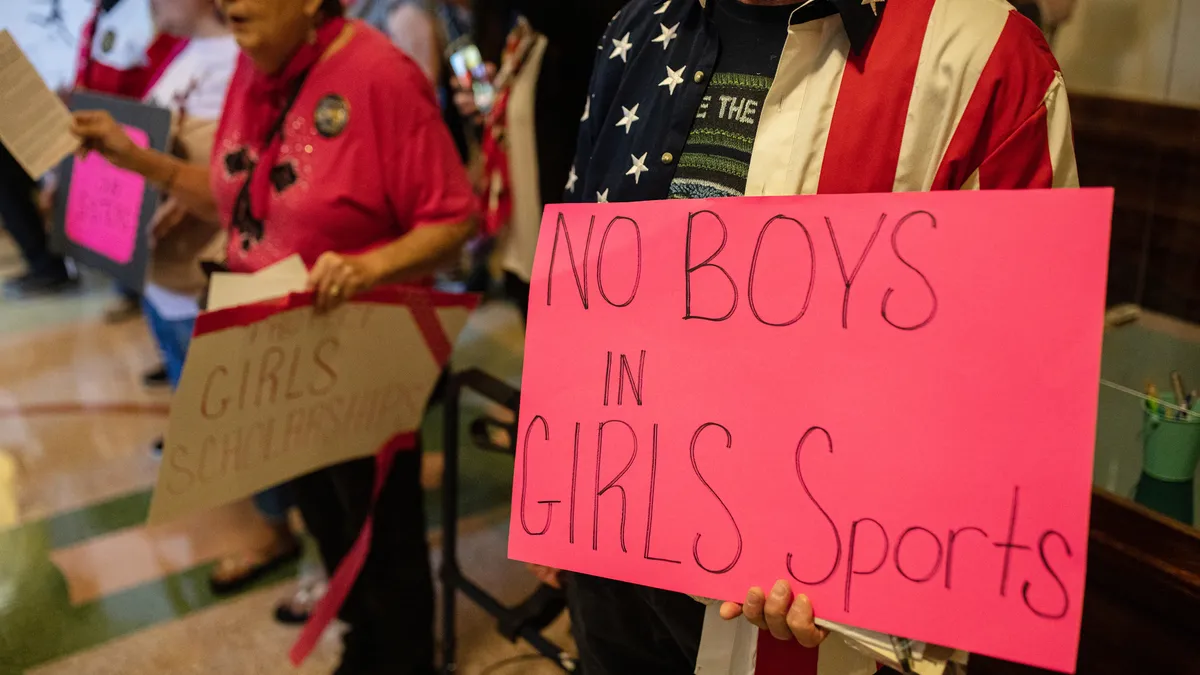The U.S. Department of Education is proposing to abandon data collection on transgender and nonbinary students, including on whether they are victims of harassment and bullying and whether school districts have policies prohibiting those incidents, according to a Federal Register notice published this month.
The changes come as part of the Civil Rights Data Collection for the 2025-26 and 2027-28 school years, a mandated survey of all public school districts that has been administered for almost six decades. The department noted on its website that the CRDC has "captured data on students' equal access to educational opportunities to understand and inform schools' compliance with the civil rights laws enforced by the Department of Education's Office for Civil Rights."
The proposed changes to the upcoming collections also struck transgender students from the department's definition of "rape" and "sexual assault."
Whereas previous collections defined rape as something that could be done to "all students, regardless of sex, or sexual orientation, or gender identity," the proposed collection says, "All students, regardless of sex, or sexual orientation can be victims of rape" — explicitly striking "gender identity" from the older definition.
The change "really sends a frankly terrible message to how schools should be responding to allegations of sexual assault and how they should be documenting that and bringing that data forward," said Brian Dittmeier, director of LGBTQI+ equality at the National Women's Law Center.
The department, however, maintained in an email to K-12 Dive that "the definition of rape and sexual assault remains virtually unchanged."
"All students means all students, period," said an Education Department spokesperson on Thursday.
The department submitted the proposed changes to the Office of Management and Budget for review on Aug. 7 and is accepting comments on the notice until Sept. 8.
The changes are being proposed to comply with the 2020 Title IX rule, which excludes LGBTQ+ students from sex-based discrimination protections. President Donald Trump's Education Department told districts in January to follow that rule — published during his first term — as opposed to the 2024 rule finalized under the Biden administration, which protected LGBTQ+ students under the sex discrimination civil rights statute.
The Education Department is also proposing a change in its Civil Rights Data Collection to exclude transgender and nonbinary students in light of Trump's January 2025 executive order “Defending Women from Gender Ideology Extremism and Restoring Biological Truth to the Federal Government.” That executive order directed federal agencies to only recognize two sexes, male and female, and said, "These sexes are not changeable and are grounded in fundamental and incontrovertible reality."
The Education Department has since adopted that stance, and it has attempted to include the definitions "male" and "female" in state policies through its resolution agreements and to exclude transgender students from teams and facilities aligning with their gender identities.
The decision to now strike those students from the CRDC means the Education Department's Office for Civil Rights — under the current administration and future ones — would have less data on how transgender and nonbinary students fared in the 2025-26 and 2027-28 school years.
"OCR uses CRDC data as OCR investigates complaints alleging discrimination to determine whether the federal civil rights laws it enforces have been violated, initiates proactive compliance reviews to identify particularly acute or nationwide civil rights compliance problems, and provides policy guidance and technical assistance to educational institutions, parents/guardians, students, and others," a July 22 statement from the U.S. Department of Education to the Office of Budget and Management said. Other federal agencies, researchers and policymakers also use CRDC data, the department said.
Transgender and students questioning their gender identity showed higher rates of bullying and poor mental health, as well as the lowest rates of school connectedness, when compared to their cisgender peers, according to the first nationally representative survey data on transgender students released by the Centers for Disease Control and Prevention last year.
An overwhelming majority of LGBTQ+ students also said in 2024 that anti-LGBTQ+ policies had impacted their mental health, according to an annual survey released by The Trevor Project, a nonprofit that provides crisis support services for LGTBQ+ people.
"We'll have less data to contextualize the problem and provide a clear picture to schools of what the experience of transgender and gender-nonconforming students is in school currently," Dittmeier said. "And that will unfortunately make it more difficult to implement interventions that are needed to ensure a safe school environment for all."






















